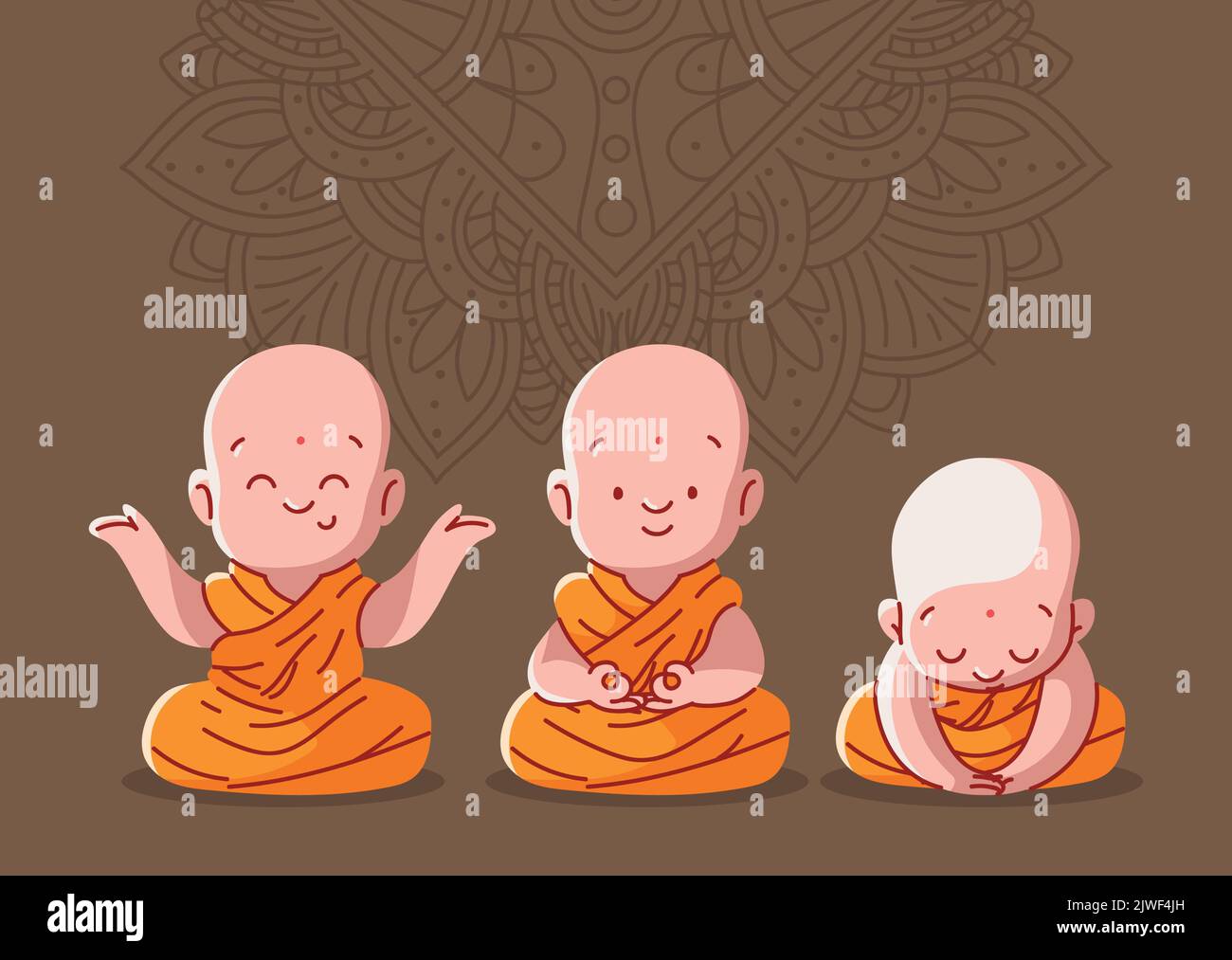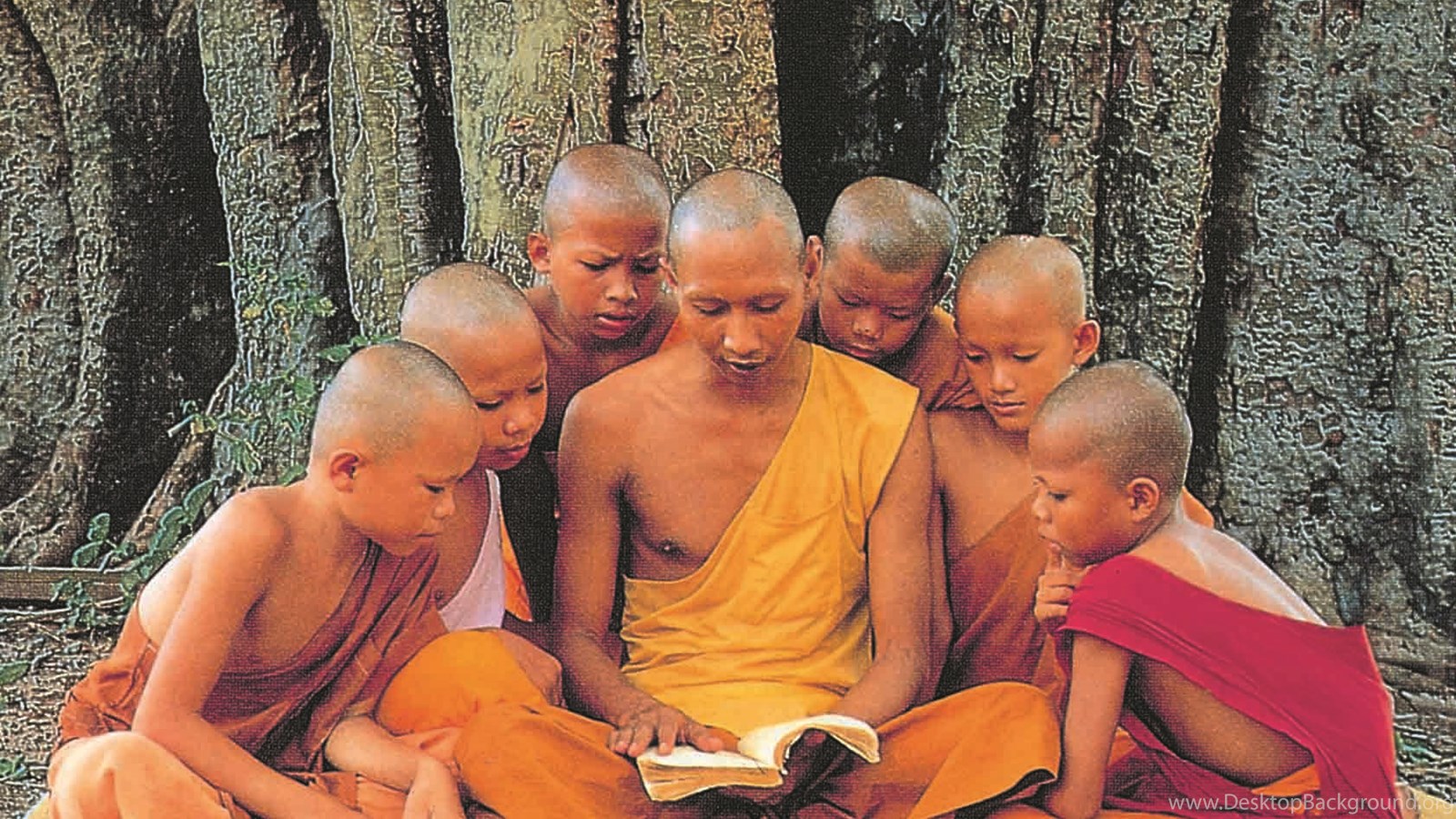Have you ever wondered about the deep meaning behind the names of Buddhist monks? These names are not just random strings of words; they carry centuries of spiritual significance and wisdom. Each name reflects the essence of Buddhism and the journey of enlightenment. In this article, we’ll dive deep into the fascinating world of Buddhist monk names, uncovering their origins, meanings, and cultural importance.
When we talk about Buddhist monk names, we’re stepping into a realm where spirituality meets tradition. These names are more than identifiers; they’re symbols of devotion, discipline, and a lifelong commitment to the path of enlightenment. For those who are curious about Buddhism or simply intrigued by the beauty of spiritual naming conventions, this article is your ultimate guide.
Whether you’re exploring Buddhism for personal growth, cultural understanding, or academic interest, understanding monk names can open up new dimensions of appreciation for this ancient practice. So, let’s embark on this journey together and uncover the hidden gems behind these sacred names!
Read also:Unveiling The Mystery Of Ssgkobe Age A Deep Dive Into The Life Of Gamings Rising Star
What Are Buddhist Monk Names?
Buddhist monk names are an integral part of the monastic tradition. When someone becomes a monk, they receive a new name that reflects their spiritual rebirth and commitment to the Dharma. These names often carry profound meanings tied to Buddhist teachings and values. They serve as reminders of the monk’s purpose and the path they have chosen to walk.
Monk names can vary across different traditions, such as Theravada, Mahayana, and Vajrayana Buddhism. Each tradition has its own naming conventions, but all share the common goal of reflecting spiritual virtues. For example, a monk’s name might symbolize qualities like compassion, wisdom, or inner peace.
Origins of Buddhist Monk Names
The tradition of giving monk names dates back to the time of Gautama Buddha himself. In early Buddhist communities, monks were often given names that reflected their unique qualities or aspirations. This practice has continued for thousands of years, evolving with each cultural context while maintaining its core spiritual essence.
Historically, monk names were influenced by the language and culture of the region where Buddhism spread. For instance, in Tibetan Buddhism, names often incorporate elements of the Tibetan language and mythology, while in Japanese Zen Buddhism, names may draw inspiration from Chinese characters and philosophies.
Key Influences on Monk Naming Traditions
- Historical Buddhist texts and teachings
- Local languages and cultural practices
- Symbolic meanings associated with virtues and aspirations
- Influence of prominent Buddhist figures and teachers
Structure of a Buddhist Monk Name
A typical Buddhist monk name usually consists of two or more parts, each carrying specific meanings. The first part often represents a spiritual quality, while the second part may refer to the monk’s lineage or monastery. For example, the name “Ajahn Chah” can be broken down as follows:
- Ajahn – A title of respect for teachers in Thai Buddhism
- Chah – The personal name given to the monk
This structure allows for a rich tapestry of meanings to be woven into each name, making it both personal and universal.
Read also:Ingrid Harbaugh Age Unveiling The Life And Journey Of A Remarkable Woman
Popular Buddhist Monk Names and Their Meanings
Let’s take a closer look at some of the most popular Buddhist monk names and what they signify. These names not only reflect the monk’s spiritual journey but also inspire those who hear them.
Thich Nhat Hanh
Thich Nhat Hanh was one of the most renowned Buddhist monks of our time. His name can be interpreted as follows:
- Thich – A common surname for Vietnamese Buddhist monks
- Nhat Hanh – Meaning “one action,” symbolizing mindfulness and living in the present moment
Dalai Lama
The Dalai Lama is the spiritual leader of Tibetan Buddhism. His name translates to “Ocean of Wisdom,” reflecting his role as a guiding light for millions around the world.
Shunryu Suzuki
Shunryu Suzuki was a key figure in introducing Zen Buddhism to the West. His name means:
- Shunryu – “Spring Dragon,” symbolizing strength and growth
- Suzuki – A common Japanese surname
The Process of Naming a Buddhist Monk
Becoming a monk involves a profound transformation, and the naming process is a crucial part of this journey. When a person enters the monastic life, their teacher or abbot bestows a new name upon them. This name is carefully chosen to reflect the individual’s spiritual potential and the qualities they are encouraged to cultivate.
In some traditions, the monk’s name is selected based on a specific mantra or scripture. In others, it may be inspired by the monk’s birth date, place of origin, or personal characteristics. Regardless of the method, the name serves as a reminder of the monk’s purpose and commitment.
Cultural Variations in Monk Naming Practices
Buddhism has spread across diverse cultures, and each region has developed its own unique approach to naming monks. Let’s explore some of these variations:
Tibetan Buddhism
In Tibetan Buddhism, monk names often include titles such as “Rinpoche” (precious one) or “Lama” (guru). These titles signify the monk’s spiritual rank and authority. Names may also incorporate elements of Tibetan mythology and cosmology.
Thai Buddhism
Thai Buddhist monks often use the title “Ajahn” or “Luang Por” to denote respect. Their personal names may be inspired by Pali or Sanskrit terms related to Buddhist teachings.
Japanese Zen Buddhism
Japanese Zen monks typically receive names that reflect their connection to nature and the universe. These names often incorporate Chinese characters with deep symbolic meanings.
Symbolism Behind Buddhist Monk Names
Every aspect of a monk’s name is steeped in symbolism. The choice of words and their arrangement can convey complex spiritual concepts in a single name. For example:
- Names related to water symbolize purity and clarity
- Names associated with mountains represent stability and endurance
- Names inspired by animals signify qualities like wisdom (owl) or strength (lion)
These symbolic meanings help monks stay connected to their spiritual goals and serve as daily reminders of their vows.
The Role of Monk Names in Spiritual Practice
A monk’s name is not just a label; it plays an active role in their spiritual practice. By meditating on the meaning of their name, monks can deepen their understanding of the Dharma and strengthen their resolve. Names also foster a sense of community among monks, as they share common values and aspirations.
In some traditions, monks use their names as mantras during meditation, repeating them to cultivate mindfulness and concentration. This practice reinforces the connection between the name and the monk’s spiritual journey.
Modern Relevance of Buddhist Monk Names
In today’s fast-paced world, the wisdom embedded in Buddhist monk names remains as relevant as ever. As more people seek spiritual guidance and inner peace, the meanings behind these names offer valuable insights. For example:
- Names emphasizing compassion can inspire acts of kindness in daily life
- Names symbolizing patience can help individuals navigate challenges with grace
- Names representing wisdom can encourage lifelong learning and self-discovery
By understanding the significance of monk names, we can apply their teachings to our own lives and create a more harmonious world.
Challenges in Translating Monk Names
Translating Buddhist monk names from their original languages into English can be a complex task. Many names carry cultural and linguistic nuances that are difficult to convey accurately. However, efforts to preserve the original meanings and symbolism are essential for maintaining the integrity of these sacred names.
Translators often collaborate with Buddhist scholars and practitioners to ensure that the translations remain faithful to the original intent. This collaboration highlights the importance of cross-cultural understanding in preserving Buddhist traditions.
Conclusion: Embracing the Wisdom of Buddhist Monk Names
We’ve journeyed through the sacred world of Buddhist monk names, uncovering their origins, meanings, and cultural significance. These names are not merely labels but powerful symbols of spirituality and devotion. By exploring the depths of monk names, we gain a deeper appreciation for the rich tapestry of Buddhism and its timeless wisdom.
So, the next time you encounter a Buddhist monk name, take a moment to reflect on its meaning. Let it inspire you to embrace the virtues it represents and apply them to your own life. And don’t forget to share this article with others who might find it enlightening. Together, we can spread the light of knowledge and understanding!
Table of Contents
- What Are Buddhist Monk Names?
- Origins of Buddhist Monk Names
- Structure of a Buddhist Monk Name
- Popular Buddhist Monk Names and Their Meanings
- Thich Nhat Hanh
- Dalai Lama
- Shunryu Suzuki
- The Process of Naming a Buddhist Monk
- Cultural Variations in Monk Naming Practices
- Tibetan Buddhism
- Thai Buddhism
- Japanese Zen Buddhism
- Symbolism Behind Buddhist Monk Names
- The Role of Monk Names in Spiritual Practice
- Modern Relevance of Buddhist Monk Names
- Challenges in Translating Monk Names
- Conclusion: Embracing the Wisdom of Buddhist Monk Names


